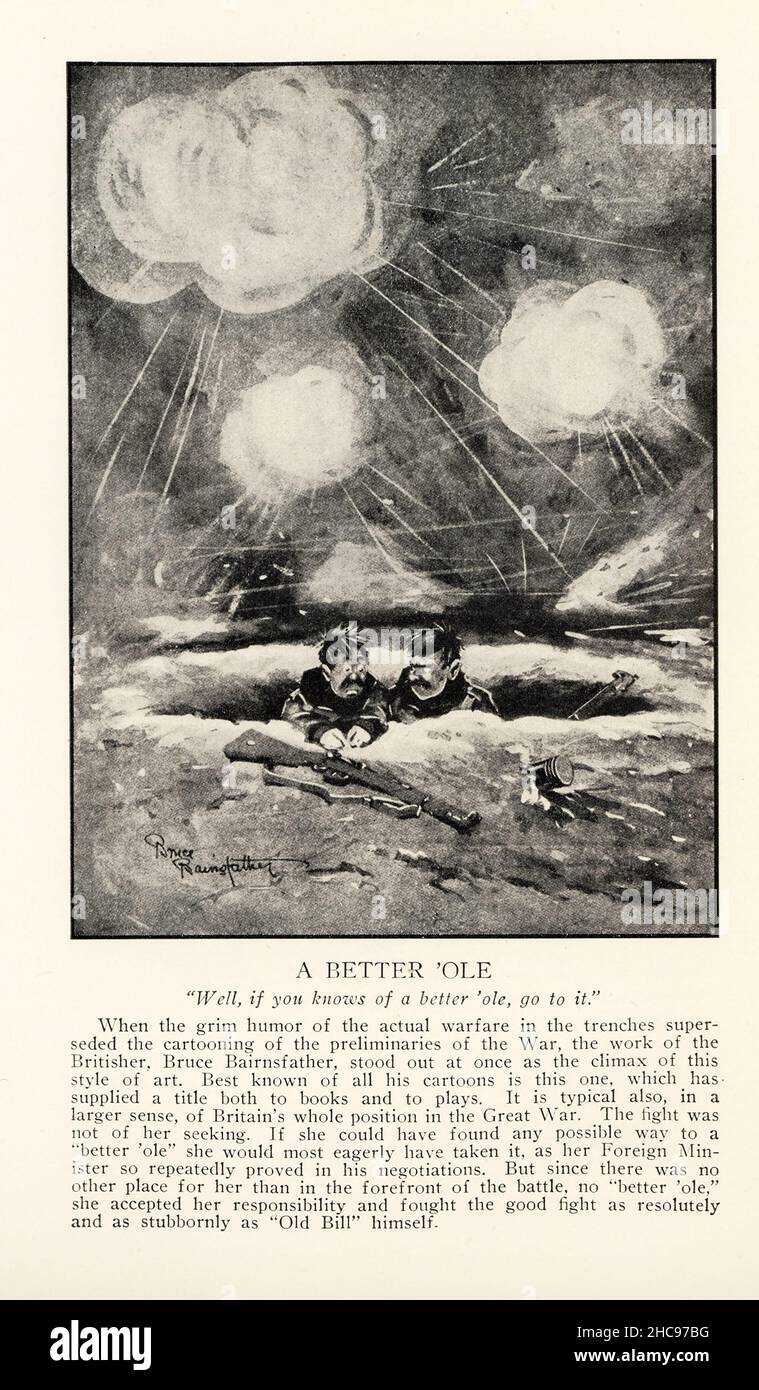A Better ‘Ole “Well, if you knows of a better ‘ole, go to it.” When the grim humor of the actual warfare in the trenches superseded cartooning of the preliminaries of the War, the work of the Britisher, Bruce Bairnsfather, stood out at once as the climax of this style of art. Best known of all his cartoons is this one, which has supplied a title both to books and plays. It is typical also, in a larger sense, of Britain’s whole position in the Great War. The fight was not of her seeking. If she could have found any possible way to a “better ‘ole” she would most eagerly have taken it, as her F

Image details
Contributor:
Ivy Close Images / Alamy Stock PhotoImage ID:
2HC97BGFile size:
25.4 MB (1.7 MB Compressed download)Releases:
Model - no | Property - noDo I need a release?Dimensions:
2279 x 3900 px | 19.3 x 33 cm | 7.6 x 13 inches | 300dpiDate taken:
29 October 2021More information:
This image could have imperfections as it’s either historical or reportage.
A Better ‘Ole “Well, if you knows of a better ‘ole, go to it.” When the grim humor of the actual warfare in the trenches superseded cartooning of the preliminaries of the War, the work of the Britisher, Bruce Bairnsfather, stood out at once as the climax of this style of art. Best known of all his cartoons is this one, which has supplied a title both to books and plays. It is typical also, in a larger sense, of Britain’s whole position in the Great War. The fight was not of her seeking. If she could have found any possible way to a “better ‘ole” she would most eagerly have taken it, as her Foreign Minister so repeatedly proved in his negotiations. But since there was no other place for her than in the forefront of the battle, no “better ‘ole, ” she accepted her responsibility and fought the good fight as resolutely and as stubbornly as “Old Bill” himself.